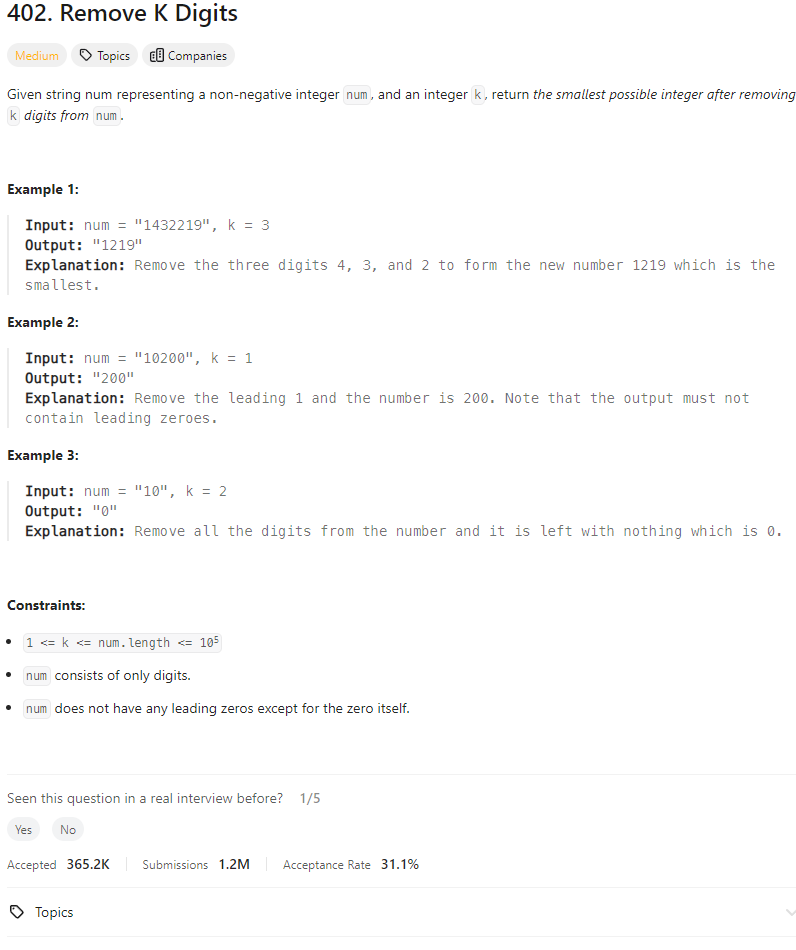Problem of The Day: Remove K Digits
Problem Statement

Note: Need to review this problem again
My Approach - TLE
In my approach, I apply memoization to try all possible combinations efficiently. I start by defining a function to compare strings based on their lengths and digits, and another to remove leading zeroes. Then, within the main function, I use dynamic programming with memoization to explore all possible combinations of removing digits.
I recursively explore two options for each digit: either removing it or keeping it. I compare the results of these options using my comparison function and update the result accordingly. Finally, I remove any remaining placeholder characters (x) and leading zeroes from the result before returning it. This way, I ensure that I find the smallest possible number after removing k digits from the given string.
class Solution:
def removeKdigits(self, num: str, k: int) -> str:
N = len(num)
def compareStrings(s1, s2):
if not s1:
return s1
if not s2:
return s2
if len(s1) < len(s2):
return s1
elif len(s1) > len(s2):
return s2
for c1, c2 in zip(s1, s2):
if int(c1) < int(c2):
return s1
if int(c1) > int(c2):
return s2
return s1 or s2
def trimZeroes(s):
i = 0
while i < len(s) and s[i] == '0':
i += 1
return s[i:] if s[i:] != '' else '0'
@cache
def dfs(i, count, num_str):
if i >= N or count == 0:
num_str = num_str.replace('x', '')
return num_str
for j in range(k):
idx = i + j
remove = dfs(i + 1, count - 1, num_str[:idx] + 'x' + num_str[idx + 1:])
skip = dfs(i + 1, count, num_str)
dfs.res = compareStrings(dfs.res, remove)
dfs.res = compareStrings(dfs.res, skip)
return dfs.res
dfs.res = num
dfs(0, k, num)
dfs.res = trimZeroes(dfs.res)
return str(dfs.res)
Editorial Solution
Approach 2: Greedy with Stack
class Solution:
def removeKdigits(self, num: str, k: int) -> str:
numStack = []
# Construct a monotone increasing sequence of digits
for digit in num:
while k and numStack and numStack[-1] > digit:
numStack.pop()
k -= 1
numStack.append(digit)
# - Trunk the remaining K digits at the end
# - in the case k==0: return the entire list
finalStack = numStack[:-k] if k else numStack
# trip the leading zeros
return "".join(finalStack).lstrip('0') or "0"
- Time: O(n)
- Space: O(n)